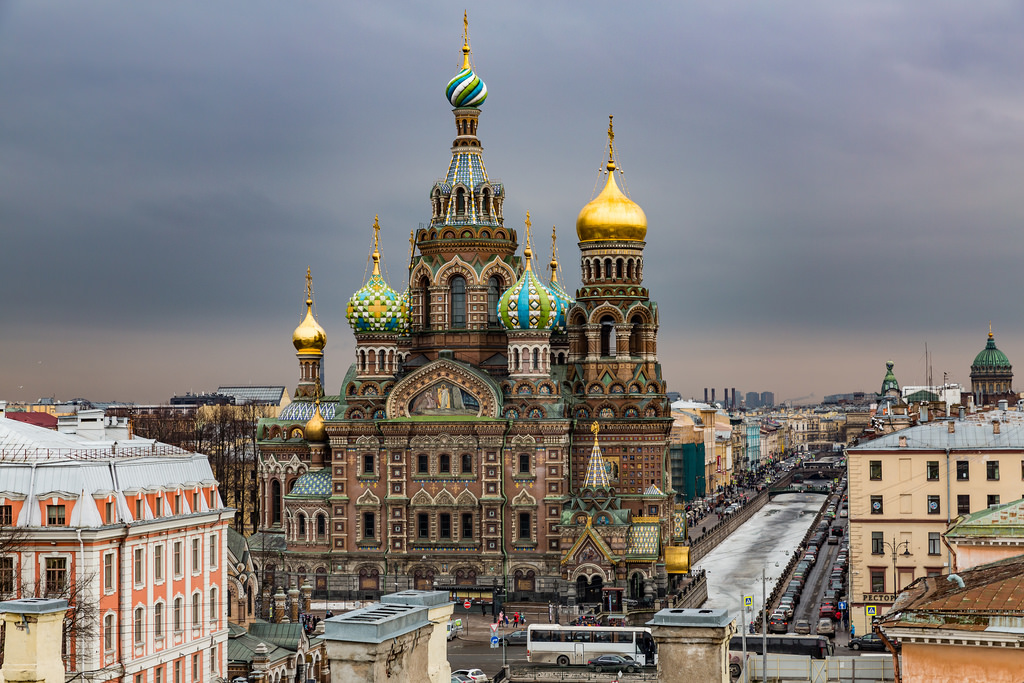Last week, Gustavus abruptly suspended all study abroad programs to Russia for the indefinite future due to the closure of the U.S. consulate in St. Petersburg.
Gustavus is only the third college in the nation to make the decision to halt study abroad programming to Russia.
The program provider, Council on International Educational Exchange (CIEE), will continue normal operations of the program.
The closure of the Embassy in March was a Russian response to the decision of the U.S., U.K. and dozens of other countries to evict Russian diplomats after Russia was accused of poisoning a former Russian double agent on British soil with a Soviet-designed nerve agent.
Notably, although the Consulate in St. Petersburg has been shuttered, the U.S. Embassy in Moscow and the U.S. Consulates in Yekaterinburg and Vladivostok remain open.
The decision to cease study abroad opportunities in Russia was made by the Gustavus Travel Safety Committee, a board composed of Dean of General Education & Assessment, Mary McHugh, the Dean of Students Office JoNes VanHecke, Center for International and Cultural Education (CICE) staffers Roger Adkins, Justin Kader and Bryan Messerly, Finance/Risk Management officer Dale Plemmons, and Campus Safety Director Carol Brewer.
According to McHugh, the decision was not an easy one.
Members of the committee considered a variety of options, including only suspending St. Petersburg based programs, given the continued presence of the Embassy in Moscow.
Eventually, the committee concluded unanimously that, given the warning of the State Department that they would have limited ability to help anyone detained while in St. Petersburg, Gustavus had no choice but to suspend the program indefinitely.
“The fact, though, that there is no US government support for US citizens in St. Petersburg – with the recent loss of the US consulate there – was an impossible detail for us to ignore (since that is where the popular programs are based),” McHugh said.
“The overall context is one that, for any country, would and does lead us to the same decision.”
The decision to shut down the programs, made some six weeks after the closure of the Consulate, came quite late for students who had already signed up for these programs.
“I was informed of this decision last Monday, which was of course after all of the deadlines for registering for classes, room draw, et cetera here as well as beyond the deadlines to apply to other deadlines in Russia or to transfer schools,” Sophomore Amy Eisenchenk said, who was looking forward to studying abroad in St. Petersburg.
For Eisenschenk, who has just three remaining semesters at Gustavus, next semester was her only realistic opportunity to study abroad.
Junior Alex Miller, a Russian-born adoptee, noted the incredible value of studying abroad in Russia.
“Especially in today’s political climate, where no one anywhere knows what Russia is doing, cancelling the program makes that worse,” she said.
“Fewer people will know what Russia is doing, because no one will have gone to Russia to see what they’re like, how they think, and there’s not going to be Americans experiencing the Russian culture.”
The decision to halt Russian study abroad comes at a significant time for both Russia and the Russian and Eastern European Studies program.
While small, the Russian and Eastern European studies program at Gustavus retains an important and vibrant presence on campus.
For Miller, it’s one of the main reasons why she decided to come to Gustavus over other colleges.
Although Russian studies used to be more prominent during the Cold War era, Gustavus’ program is one of just a handful of undergraduate Russian programs left in Minnesota.
“When the Soviet Union fell, people just didn’t focus on Russia at all,” Miller said.
“That’s why there aren’t a lot of Russian studies programs – People lost interest because it wasn’t a threat.”
Even as Americans lost focus on Russia, the country remained a geopolitical powerhouse, with a significant amount of oil wealth, a massive military and several thousand nuclear weapons.
Now, as Special Counsel Robert S. Mueller’s investigation digs deep into Russian meddling and potential collusion with Donald Trump’s campaign, tensions between Russia and the United States are rising once again.
Even as most Americans know relatively little about the country, Russia is clearly determined to play a prominent role in world affairs.
“People know so little about (Russia), but tend to be very biased against it, especially with Trump and how Russia probably helped with the election,” Miller said.
Here at Gustavus, the Russian and Eastern European Studies program has been anchored since 1984 by Professor Denis Crnkovic (Glenn Kranking is currently the only other Professor in the Department).
With Crnkovic scheduled to retire at the end of 2018-19 academic year, the department is about to go through some turnover.
Yet the Russia and Eastern European studies program not only provides much information of relevance in the modern geopolitical sphere, but meshes well with the firm commitment the College has made to multiculturalism and increased diversity in Pillar 1 of the Gustavus ACTs initiative, which states that “The College recognizes that the “who” of the Gustavus community must reflect the diversity of the world from which our students come and to which they will return, while the “what” of its academic offerings must prepare students for life and work in an ever more complex and interdependent world.”
Many see the Russian and Eastern European studies program at Gustavus to play an invaluable role in providing the kind of bold, insightful 21st century liberal arts education that both students and their future employers are seeking‒setting Gustavus apart from Colleges which lack such programs.
